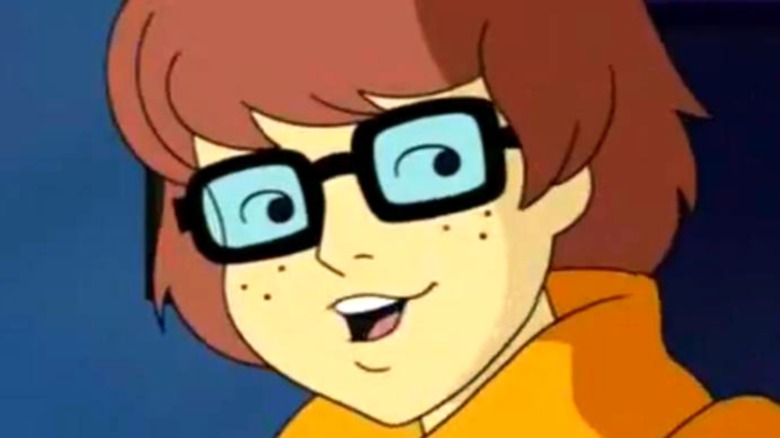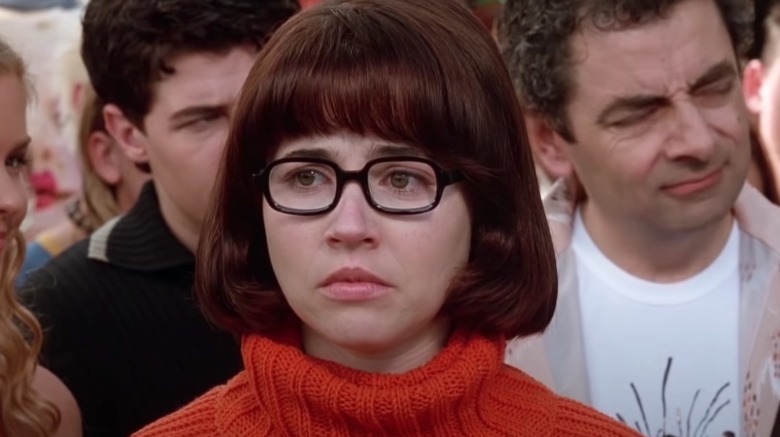The Truth About Velma And Marcie's Relationship In Scooby Doo
It's been commonly theorized by fans of the long-running "Scooby-Doo" franchise that the Scooby Gang's Velma Dinkley isn't into men, as the bespectacled heroine's nerdy, reclusive nature and fashion choices fall into some stereotypes of "queer-coding" in TV, whether intentional or not. However, thanks to behind-the-scenes creators of two different iterations of "Scooby-Doo" coming forward, we now know that Velma's orientation was meant to be more explicit, more than once.
Back in June 2020, Tony Cervone made a post on Instagram showing Velma (Mindy Cohn) and Marcie (Linda Cardellini), a member of "the gang" in Cartoon Network's 2010-2013 series "Scooby-Doo! Mystery Incorporated," together in front of a pride flag. Cervone, who acted as a supervising producer for the show, writes, "I obviously don't represent every version of Velma Dinkley, but I am one of the key people that represents this one. We made our intentions as clear as we could ten years ago. Most of our fans got it. To those that didn't, I suggest you look closer. There's no new news here."
Although Cervone is right that he doesn't represent every version of Velma, there's one other iconic version of the character who was also meant to be queer but unfortunately wasn't able to be portrayed that way due to censorship.
Velma was also meant to be queer in James Gunn's live-action Scooby-Doo movies
In July of the same year, "Guardians of the Galaxy" film director and writer James Gunn tweeted in response to a fan about Velma's (Cardellini) sexuality in 2002's "Scooby-Doo" (which he wrote), stating, "In 2001 Velma was explicitly gay in my initial script. But the studio just kept watering it down & watering it down, becoming ambiguous (the version shot), then nothing (the released version) & finally having a boyfriend (the sequel)."
It's depressing that after over half a century since "Scooby-Doo" hit the airwaves in 1969, not one version has been able to portray Velma as the lesbian icon so many fans and creators have interpreted her to be. As society — and publishers — become more accepting of queer characters in children's content, however, hopefully we can one day see Velma let her true colors show. There's an adult-oriented series in production for HBO Max all about Velma before her days with Mystery Incorporated, and although a look into Velma's true identity would be welcome here as well, we'd love to see a version that tells audiences of all ages it's okay to love whoever you want.

